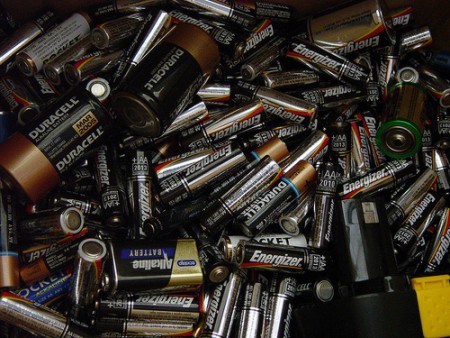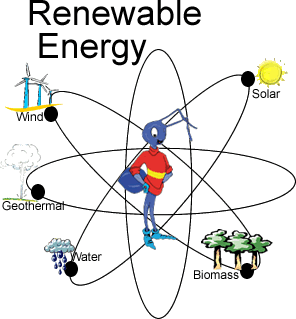 I just finished watching Barack Obama’s “60 Minutes” interview via YouTube; talk about a flaming bag of problems on your White House porch. Obama is really going to have his hands full (and perhaps his shoes). He is going to have to deal with a United States in shambles. We have an economic crisis not seen since the Great Depression, an ongoing energy crisis, several wars (war on drugs, war on terror, war in Iraq, and war in Afghanistan), a healthcare crisis, globalization and free trade, illegal immigration, and an education crisis.
I just finished watching Barack Obama’s “60 Minutes” interview via YouTube; talk about a flaming bag of problems on your White House porch. Obama is really going to have his hands full (and perhaps his shoes). He is going to have to deal with a United States in shambles. We have an economic crisis not seen since the Great Depression, an ongoing energy crisis, several wars (war on drugs, war on terror, war in Iraq, and war in Afghanistan), a healthcare crisis, globalization and free trade, illegal immigration, and an education crisis.
Although this is a lot to have on anyone’s plate, many of these issues have links to each other. So let’s look at a few of these over the next several days.
Globalization, free trade, poison milk, energy and pollution
Globalization and free trade help to improve the standard of living in other countries and brings the world together by sharing economic ties. Every day more and more US jobs move to China, India, and other developing countries. We import much more than we export and waste so much more than the rest of the world’s countries that we should probably buy another country so we have a place big enough for our giant landfill. Our filthy wasteful habits set a poor example for the rest of the world. We are going to have to do better.
We need to transition to clean renewable energy sources and help our trading partners to do the same. We also need to help our trading partners to establish or improve product quality monitoring systems so we can reduce or eliminate dangerous imported goods (like those irresistibly fun lead-painted toys, or that delicious melamine-laced Chinese milk).
Many of these job losses are inevitable as the world evolves. Like most of you, I do not enjoy troubleshooting a problem that I am having with a new product via the telephone to a distant country. I do, however, enjoy the challenge of learning a new language at the same time as much as any other guy. But what happens if I’m the guy that that used to work in the customer service center here in the U.S., and now my job has been outsourced to another country? I’m going to need another job. Maybe I’ll go into politics.
Therefore, it will be necessary to create retraining programs for our displaced workers (and it needs to begin NOW). With proper government incentives and funding, new industries can be created to supply clean energy to our growing nation. Transitional training and educational programs will be required to supply workers for these clean energy industries. With proper planning and foresight, both issues (displaced workers and need for clean energy) can be handled for the benefit of all if these workers are trained and educated to handle and work in the field of clean energy. But that’s the crux: will we have the proper planning and foresight, both for the sake of the individual workers and for the future of our country?
The simple act of transporting goods from faraway places creates countless tons of unnecessary pollution. A semi-reliable flow of cheap energy has created fragile supply chains that go from your local Wal-Mart all the way back to China. Our food supplies typically come from 1500 miles away. My socks might come from 3000 miles away, my computer might come from 8000 miles away, and my technical support call to fix my computer might be answered by a person 7000 miles away. There are many, many products that can be manufactured and serviced for a lot less money and a lot more efficiently in another country like China or India. And as these countries grow, so do the amount of jokes that we tell about them. But hey let’s face it, we Americans are a lot easier to poke fun at, being the hypocrites that we are.
The explosive growth of economies like those of India and China are generating more and more unregulated pollution and greenhouse gases every day. Providing incentives to reduce this behavior and clean up the world would be a step in the right direction. Hopefully the countries that are going through the same transition from agricultural to industrial nations as we did don’t make the same mistakes. I would hate to see any country squander their resources, pollute their water, and pollute their air like we did. I hope they can learn from our mistakes and we can teach them what we’ve learned. It costs a lot more to fix it after it is broken than it does if you’d taken care of it all along and not let a break in the first place.
not let a break in the first place.
In addition to the pollution that the factories create for the improved health and enjoyment of their country’s citizens, the products themselves are often tainted or poisoned. Rewarding good behavior usually gets better results than punishing bad behavior. In China, however, this has not been the case. According to the Washington Post, in just four months the FDA rejected about 300 food products only to have the same products be resubmitted two or three times (http://www.washingtonpost.com/wp-dyn/content/article/2007/05/19/AR2007051901273.html). You have to wonder what they were thinking. Were they trying to slip them past the FDA when they were on break? Maybe it was a quality assurance test or perhaps an episode of “Candid Camera”. In response to incidents such as these, the FDA has established inspection offices in China. And according to the U.S. Department of Health and Human Services, the first of these offices opened up in Beijing this month (http://www.hhs.gov/news/press/2008pres/11/20081118a.html).
With the Republicans’ demands for deregulation and small government being enacted year after year, you have to wonder how this skeleton crew of FDA workers is going to protect us from the billions of products that come from China every year when they can’t even prevent an E. coli breakout in our home country.
Heaven help us.
JCE






You must be logged in to post a comment.